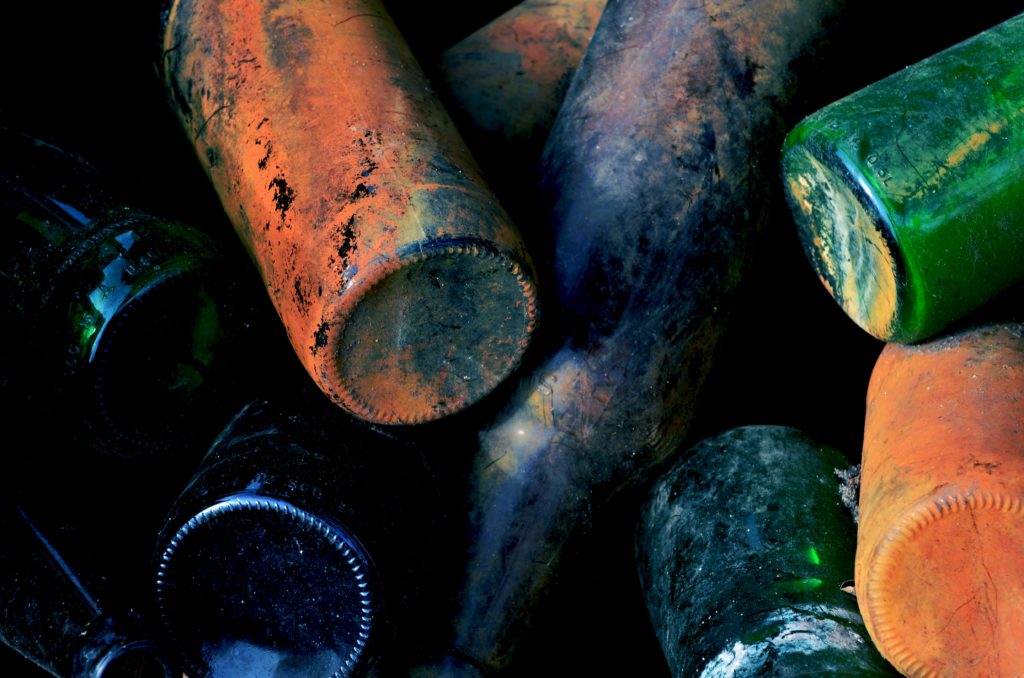On Friday, Nov. 20, 2020 we learned that the Agency of Natural Resources (ANR) has chosen not to move forward with issuing after-the-fact permits to Chittenden Solid Waste District (CSWD) for several instances of illegal dumping of glass.
This decision comes on the heels of a wave of public input to officials at ANR, urging them to reconsider the proposed retroactive permits. At a public hearing in late October (which occurred after 27 VPIRG members in Chittenden County signed a petition calling for it) ANR heard over an hour and a half of public comments, all of which were opposed to the issuing of these permits. In the following weeks, many of our members and supporters sent in written comments to ANR at our request.
We are celebrating this small victory and the power of Vermonters who are passionate about protecting our environment – but this is just the first step.
Now, we are focused on the Attorney General’s office, where the question of enforcement is being considered. We strongly believe that there must be a penalty issued to CSWD in order to make it very clear that this type of behavior is unacceptable, and to ensure it doesn’t happen again.
In April 2018, the Vermont Agency of Natural Resources (ANR) sent the Chittenden Solid Waste District (CSWD) a Notice of Alleged Violation for illegally dumping glass that Vermont residents and haulers had paid them to recycle. Records indicate that thousands of tons of glass were diverted from recycling and instead dumped in three locations around CSWD’s property without public knowledge, in violation of Vermont Consumer Protection and Solid Waste Laws.
Now, the office of the Attorney General (AG) is considering putative action for this transgression. The Attorney General must do his job of enforcing Vermont’s laws and issue a penalty for CSWD’s violations. The AG must include a requirement of an admission of wrongdoing by CSWD within the issued penalty; CSWD has been dishonest about their practices, which can only serve to sow distrust amongst Vermonters who have been dutifully separating their waste for recycling.
For example, CSWD suggested that it had used glass for construction projects at an approved facility, which is allowed by ANR so long as the glass meets certain requirements. A VTDigger article characterizes CSWD’s actions as:
[n]ot dumping the glass but rather was using it to line a road along the closed Williston landfill. [Michelle Morris from CSWD] pointed VTDigger to a 2002 list from ANR of “acceptable uses” for processed glass aggregate, which is glass that has been cleaned and crushed to a certain size. One of the uses of processed glass aggregate is as an “embankment” to fill in a slope.1
However, a former CSWD employee’s affidavit indicates the glass was not clean enough to meet requirements. “The PGA was visibly dirty. It had a putrid smell when it was being manipulated. I believe the poor condition of the PGA made it difficult to recycle it economically.” He added that rather than using the glass for a legitimate use under ANR’s policy – as an embankment to stabilize the slope – he believed it “had been done to facilitate the dumping of a large volume of PGA at that location to facilitate the continued operation of the MRF.”2
Further evidence that the glass dumped by CSWD failed to meet the PGA requirements is evidenced in the 2019 testimony of John Brabant to the Senate Natural Resources and Energy Committee. Brabant, a former DEC employee and certified environmental analyst, included in his testimony pictures of the glass where CSWD allegedly dumped it.3 The photos show bits of crushed glass along with contaminants such as plastic. Brabant brought samples from the site to show Senators as part of his testimony. He also said that he tested some of the glass and concluded that it did not meet the requirements to be used for road construction projects.
Beyond the evidence that the glass was not clean enough to meet ANR’s acceptable uses for processed glass policy, there are several other elements of wrongdoing:
- CSWD ignored legal requirements to obtain permits for dumping huge quantities of glass – namely, a solid waste permit for placing the glass in a closed landfill, and Act 250 permits for materially changing an existing development
- CSWD has undermined public trust in recycling. Had consumers and trash haulers known CSWD would dump the glass instead of recycling it as CSWD originally advertised, they may have chosen another place to bring their recyclables.
- CSWD has failed to take responsibility and has failed to tell the truth about its actions in multiple public forums.
There are two distinct issues of concern for CSWD’s actions. First, CSWD broke environmental regulations. Itis especially important CSWD be held accountable for its actions since the District has suggested in public forums that its actions with the glass were lawful and has further denied any investigation is taking place. VPIRG is concerned that without a substantial rebuke of CSWD’s actions we can expect a more cynical attitude towards recycling. In other words, if CSWD gets away with dumping recyclable glass, we are concerned there could be an increase in illegal dumping by other citizens and businesses in the state.
VPIRG argues there is a consumer protection issue here as well. VPIRG firmly believes CSWD misled the public and trash haulers about what happens to their curbside recycling materials. It is CSWD’s fraudulent claims that may have harmed private citizens, businesses, and trash haulers. Vermonters deserve to know the truth about CSWD’s actions and need reassurance that the violations will be addressed. Once again, VPIRG urges the attorney general to pursue appropriate steps to hold CSWD publicly accountable for its actions.
To take action on this issue, call or write to the Attorney General today:
Phone: (802) 828-3171
Email: ago.info@vermont.gov
Mailing Address:
Vermont Attorney General’s Office
109 State Street
Montpelier, VT 05609

